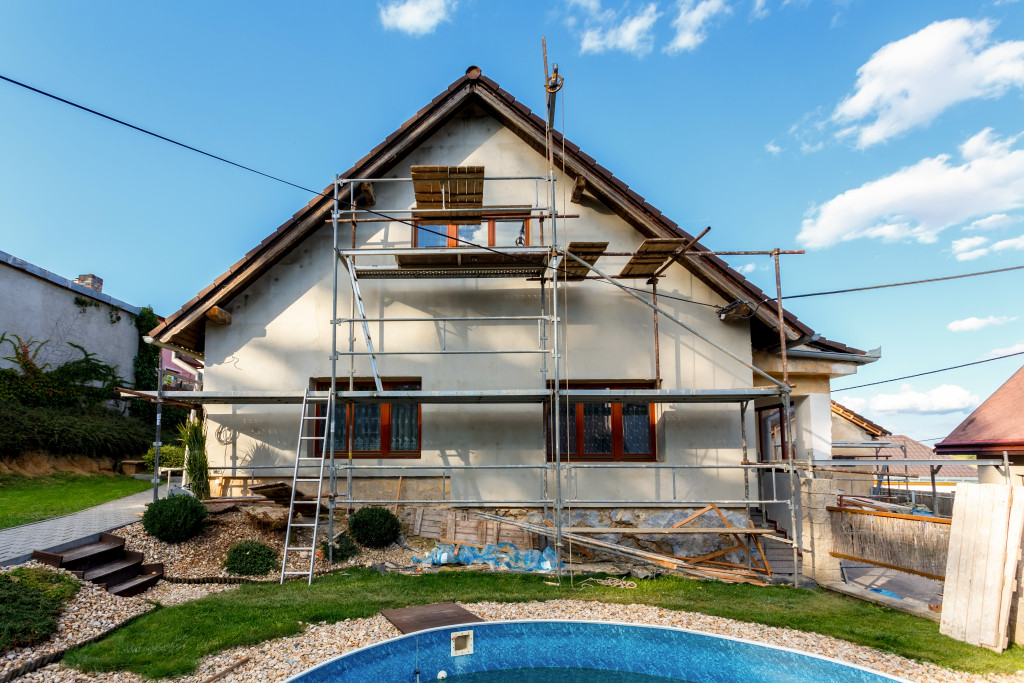Many attempt house-flipping as a side hustle while holding a full-time job. Because flipping homes can give you about a 70% return on investment, this can be a very profitable endeavor. But what if you want to make flipping houses your primary source of income? How do you make the jump from amateur to professional? If you’re ready to take the plunge, here are some tips to help you succeed.
1. Get Educated
The first step to any successful career is education. When it comes to flipping houses, there’s a lot to learn. You need to understand the ins and outs of real estate law, know how to read a property assessment, and estimate repair costs accurately. You also need to familiarize yourself with the housing market in your chosen area so that you can buy low and sell high.
The best way to gain this knowledge is by taking courses offered by experienced professionals or by working as an apprentice for an established house flipper. Many real estate investors offer mentorship programs that give you the hands-on experience you need to succeed. You can also find helpful information online, but nothing beats the experience and advice of a seasoned pro.
2. Establish a Good Relationship With Your Real Estate Agent
Your real estate agent is your best asset when it comes to house-flipping. They will be able to give you the inside scoop on properties before they hit the market. A good realtor will also be able to help you negotiate a better deal on the properties you’re looking to buy. If you don’t have an established relationship with a real estate agent, start looking for one now.
You can also use your agent to establish relationships with contractors and other professionals in the industry. The more contacts you have, the easier it will be for you to find quality deals and flip homes quickly. When it comes to house-flipping, time is of the essence.

3. Create a Business Plan
A business plan is essential for any new business venture, and house-flipping is no exception. Your business plan should include your objectives, target market, marketing strategy, and financial projection. It should also outline the details of your properties—purchase price, estimated repair costs, projected sale price—so that you can track your progress and ROI over time. Creating a comprehensive business plan will help you stay organized and on track as you start out in your new career.
To write a successful business plan, you’ll need to do some research. Look into market trends in your area and develop a comprehensive marketing plan that includes both online and offline tactics. Don’t forget to include your budget and timeline as well. If you’re not sure how to create a business plan, there are many resources available online that can help.
4. Find the Right Partners
Partnering with other experienced flippers or investors can be a great way to start the business. Not only will they be able to provide you with financial support, but they can also offer advice and mentorship as you get your own flipping business off the ground. If you don’t have any partners lined up, look for reputable contractors who can provide good quality work at a fair price.
Establishing relationships with these key players early on will help ensure your success in the long run. You want to make sure you’re working with professionals who are reliable, honest, and knowledgeable. If you’re starting out on your own, having a few trusted partners can give you the confidence and support you need to succeed.
5. Invest in the Right Tools
Of course, you’ll need the right tools to get started with house-flipping. Invest in high-quality, reliable construction supplies and equipment that will help you complete the work efficiently and safely. This includes power tools, safety equipment, ladders, and more. You’ll also need basic renovation materials such as paint, sandpaper, and brushes.
Having the right tools will help ensure that you can complete projects on time and within budget. Don’t skimp on quality here—the more durable and reliable the tools, the better. Many flippers opt to rent their tools and equipment rather than buy them outright, as this can be a more economical option. But if you find yourself doing more and more projects, it may eventually make sense to invest in your own tools.
Making the jump from amateur house flipper to professional is no easy feat. But with hard work, dedication, and the right team in place, it’s achievable. If you’re ready to take your flipping career to the next level, remember to get educated, create a comprehensive business plan, and surround yourself with experienced professionals who can offer guidance and support. With these tips in mind, you’ll be on your way to success in no time!

